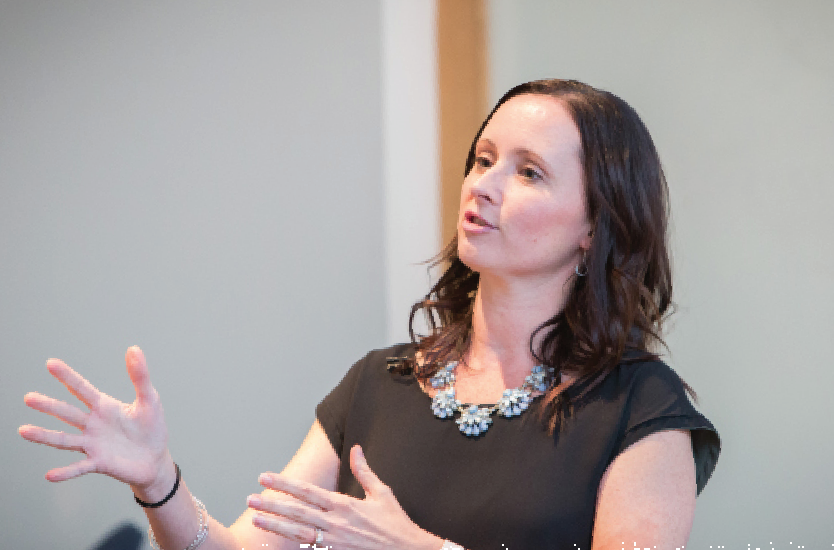
Edita Bardhi
Opinion Editor
As part of the Provost Colloquium Series, ESU’s Academic Affairs sponsored, “Are We So Different? A Comparative Examination of Student Self-reported Value of Prioritization and the Perceived Value of Prioritizing Others,” last Wednesday evening at 5:30 p.m.
Located in Beers Lecture Hall, the discussion was given by two ESU professors: Associate Professor of Sociology, Social Work & Criminal Justice Dr. Carrie Maloney and Assistant Professor of Sociology, Social Work & Criminal Justice Dr. Darla Darno.
Beginning the discussion, Maloney explained how a classroom exercise in one of her ethics courses influenced her to begin such a project. She first started this project in 2012 and is working to finish it soon.
In her classroom exercise, the students were given a list of 23 values. Values such as honesty, family, health, success and emotional well-being. They were asked to do two things. First, rate the values in order of importance to themselves. Second, rate them based on what they thought most other people would rake them.
The purpose of this was to explore their values based on their ratings – were they going to rate based on personalization or generalization? Afterward, students could compare the two rankings and understand perception.
“It is essential to fostering higher-level analytical, critical thinking skills. It’s really, really helpful for students to have that opportunity to explore the ‘what if’s’, the ‘what would you do,’ and challenge them to think of them beyond what they know to be their chosen career path,” said Maloney.
She continued, “What is your moral obligation? What is it beyond your duty as a Law Enforcement Officer, Correctional Officer? What is your moral obligation as a human being?”
She also stated that most if not all, criminal justice curriculums require an ethics course.
One area in which Maloney enforced is the rights and responsibilities of the criminal justice professions.
“Criminal justice professions have the authority and have a power that no other citizens in the United States has,” said Maloney.
She continued, “They are given an immanence amount of responsibility. They alone can take away our rights.”
Fifteen minutes into the discussion, Darno began to speak of how students try to find themselves. Particularly, she mentioned personality choices, viewpoints, experiences, and skills influence students to determine which fields they study in college.
Applying this to criminal justice, students determine which criminal justice areas to go based on their skills. She used the word, “Police Personality,” to distinguish this.
“Certain personalities might be drawn into certain professions,” said Darno.
In addition, a Socialization Model chart was displayed to the audience. This chart shows that not everything individuals know have been learned from their position.
In other words, the chart teaches students how they must act, how to engage with others, and other characteristics while on the job.
This connects values through power.
Darno goes onto explain how individuals may or may not like criminal justice simply based on our perspectives of it. These perspectives were taken from a survey done by anonymous ESU students.
To learn about the specifics of the students, gender, race, ethnicity, academic standing, year and primary major were all included in the survey.
“Ultimately, we selected eight majors. They were based on living and generalized career paths. Seven of those majors were included in the final samples,” said Darno.
Once the results appeared, the professors learned that more female students took the survey than males. Also, more juniors and seniors took the survey than freshman and sophomore.
The main result learned was that criminal justice majored students valued prioritization the most.
The next event, “Recognizing Human Presence in a Technological Age: Being, Bodies, and Invocation” will occur on Wednesday, Feb. 20 at 5:30 p.m. in Beers Lecture Hall.
Email Edita at:
ebardhi@live.esu.edu

